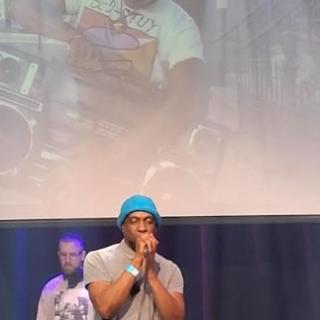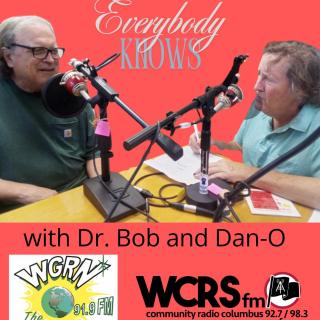Foghat released its self-titled British boogie debut; T. Rex, its third album, The Slider; and Chicago's V was America's number one thanks to its feelgood hit, Saturday In The Park.
It was also Chicago's last album without a Peter Cetera-written song.
We didn't know it, but our culture was seeing the true end of the visionary '60s and tiny little signs of Seventies Cheese would later be recognized. Cetera was soon going to slime us with his musical mayonnaise like we were French fries at the fair.
Elvis was switching performance residencies in Vegas from the Hilton to the MGM's Grand Hotel (his pay jumping to $200,000 per week from $125K) and prerecorded tape was challenging the primacy of the LP.
And Jimmy Cliff's The Harder They Come was number two in Bangkok.
What magazine would've featured all that jazz on its cover (except for the Bangkok tidbit, which was inside)?
Billboard, from Oct. 7, 1972 – my senior year in high school – and the music industry's main weekly publication. And unintended culture chronicle.
I wasn't reading it then but I would be when I started my real major at Ohio State – working record stores, my teenage dream since Louie Radcliffe and I would draw floor plans for our dream stores in eighth grade study hall.
After mourning our fallen on the most Memorial Day I ended up mourning the passing of The Age of Magazines, too.
Enjoyably, I might add, with of course a touch of wistfulness for the musical content as well as the format.
A friend who digs America's recent cultural past as much as I do had copied an entire issue courtesy of his workplace for me. That's a lot of paper – 60 pages.
As I drank a beer with my left hand, shoved boneless fried chicken with my right down my pie-hole, I devoured the near-half-century old music publication. Good times on Memorial Day, kind of apropos.
You couldn't run a successful record store without it back then. I got introduced to Billboard back when I became Singin' Dog Records’ first employee at their 10th and High store. I looked forward to Thursday every week when the mailman brought it and I read it religiously for 15 years as I worked the biz.
But, ah, 1972.
Not quite 1969 when two of the greatest albums of the age were released within days of each other: the Rolling Stones' masterpiece Let It Bleed and the Jefferson Airplane's revolutionary Volunteers, in December and November, respectively. Got 'em both for Christmas '69. Thanks, mum!
Strolling through this Billboard had plenty of tell-tale signs of change.
The idea that tape was going to knock off vinyl was a big deal back then. The audiophile slice of the LP market – or premium as the magazine called it – was feeling the advent of tape breathing down its neck:
"Prerecorded tape is for the first time challenging the disk in the last bastion of the LP, the premium field, according to exhibitors at last week's National Premium Show (NPS). Also unprecedented is the push behind 4-channel tapes and disks, with Columbia and Capitol both touting quadraphonic to premium buyers."
Huh. Quad didn't cut and home-taping would soon be Public Enemy Number One, predating downloading 25 years later. The article would make mention of the success of late-night TV marketing of records and the addition of tape availability, mainly 8-track as cassettes were in their infancy.
Let's do a little more strolling, shall we? On to page 25 for the Soul Singles chart. This was fun
Tickled to death I was to see James Brown's Good Foot, Part 1 as the Number One soul single. But what was even greater was Freddie's Dead (Theme From "Super Fly") by the magnificent Curtis Mayfield. And there's more good old news.
Bill Wither's uber-funky plea for love 'n' lovin', Use Me, was Number Three. Those three songs could be the heart of any party and probably were for many – a party.
Michael Jackson's Ben came in at Number Eight with Millie Jackson, King Floyd and Lynn Collins rounding out the rest of the Top Ten.
Makes me sick how much music sucks these days.
Billboard's country music section contained a great story, "Tammy and George Jones Ft. Worth-Dallas Area Park", about country's then-First Couple who were co-owners, opening the place and drawing 3,000 fans. Their second country music theme park, it was noted in the last sentence Shorty Lavendar of Nashville would be handling the booking.
Black country superstar Charlie Pride held the top Hot Country LPs position with his A Sunshiny Day With. A full-page ad touted singer David Houston's "greatest performance: I Wonder How John Felt (When He Baptised Jesus), produced by Billy Sherrill on Epic. "It'll make you feel good just listening to it." claimed the ad modestly.
A really precious section of the magazine that I don't remember from my days reading it was Jukebox Programming with its feature story about songs longer than two minutes thirty seconds. Under the headline "Programmer Solves Lengthy 45 Dilemma", the opening sentence ran
"Management concern over lengthy records is putting jukebox programmers in a touchy situation because many realize that young patrons in locations actually want the long singles being released from albums. However, Mrs. Pat Schwartz of Modern Specialty, Madison Wis., has found an answer."
Her solution? Keep five in rotation at all times with special care to trim the weakest as soon as they dip in popularity, noting that records over four minutes can result in an annual income loss of $728 per jukebox.
Her high school daughter had the final word, saying "operators are cutting their own throats" if they don't stock the longer 45s.
Speaking of singles, Elton John was having a great year with his Rocket Man, the magazine placing dead-center a picture in its International pages of the huge-spectacled star receiving an award as 'best world composer-singer of 1972' in the eyes and ears of Spanish music press and radio. The presentation was held in Madrid.
Billboard's 'Hits of the World listed Argentina, Bangkok, Brazil--Sao Paulo, Britain, Canada, Finland, Japan, Malaysia, Norway, Spain and Switzerland and I often read them all.
Helen Reddy's I Am Woman was finally breaking big even though it'd been out since May of that year. Guess it took time for that feminist payola to get spread around? Just kidding.
Leon Russell's Tightrope from his Carney album (No. 2 on the LPs chart) was moving into the winner's circle too thanks to increased play in the Philly, Detroit and other American Midwest radio markets. Always loved that song.
Claudine Longet's Remember The Good was newly released and Billboard-recommended, she still married to but separated from singer Andy Williams and several years away from shooting to death her ski champ boyfriend Spider Sabich in Aspen which resulted in a negligent homicide conviction.
As for the main attraction, a little disappointing...
The Billboard Top LP's & Tape chart was both fun and depressing--the best thing being the Superfly soundtrack at No.8. The rest of the Top Ten was filled with Cheech & Chong, Rod Stewart, Elton John, Three Dog Night, Gilbert O"Sullivan, Neil Diamond and the live Chuck Berry album with the filthy novelty song, My Ding-A-Ling.
Not Chuck's finest work, not a great Top 10 save Russell's Carney and the Superfly soundtrack.
As if pre-Trumpian American declinism wasn't significant enough with the tape assault on vinyl and a paltry LP Top Ten, I think it was a certain single that spelled coming doom.
Despite the release of the too-soon-to-chart Temptations' Papa Was A Rolling Stone, one of the greatest singles of all-time, Billboard Hot 100 singles chart had Mac Davis's Baby Don't Get Hooked On Me as America's Number One song.
Mac Davis. Ugh. Gack.
No more 1960s Visions of Johanna, Seventies Cheese was melting its way into our hearts. And soon only Black Sabbath could save us.



